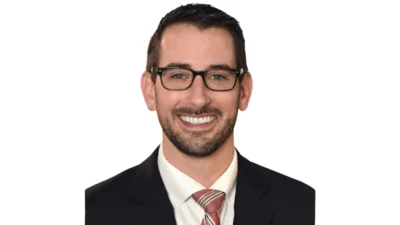Illinois state Rep. John Cabello (R-Machesney Park) | John M. Cabello (Facebook)
Illinois state Rep. John Cabello (R-Machesney Park) | John M. Cabello (Facebook)
State Rep. John Cabello (R-Machesney Park) says he's backing President Trump’s executive order to eliminate federal funding for the Corporation for Public Broadcasting, a move that directly impacts local NPR and PBS stations.
“Love it,” Cabello told the Rockford Sun. “It's absolutely positive. It is a great thing. We shouldn't be using public money to further the Democrats' message.”
The reported political imbalance in NPR’s Washington, D.C. newsroom, included 87 registered Democrats and zero Republicans—a fact that has fueled criticism of the network’s neutrality. Cabello’s comments echoed these concerns of bias in NPR’s coverage.
“I think they prove that,” he said. “If I remember correctly, as I was watching one of the Senate hearings, one of the senators was asking, giving statistics on the actual bias of it.”
The controversy over public media funding has intensified after President Trump filed an executive order titled “Ending Taxpayer Subsidization of Biased Media,” removing federal funds from public broadcasters.
In the order Trump called out NPR and PBS for undermining journalistic independence and public trust by receiving taxpayer dollars despite perceived partisan biases.
The executive order emphasized that government funding should support only “fair, accurate, and nonpartisan” news organizations. The defunding of public media will impact radio and TV stations serving the Rockford area.
Northern Public Radio, the local NPR member station, along with its classical music counterpart and its Rockford translator, will be affected. Additionally, the primary PBS stations serving Rockford viewers are WHA-TV from PBS Wisconsin in Madison and WTTW from Chicago.
During a recent congressional hearing, NPR CEO Katherine Maher—formerly head of Wikipedia and a board member of encrypted messaging app Signal—acknowledged that NPR has avoided stories that could be politically damaging to Democrats while emphasizing others critical of Republicans, regardless of their accuracy.
She also faced scrutiny over her past partisan remarks and views on limiting free speech.Maher was also confronted about past tweets reflecting controversial left-wing views including her 2020 assertion that “America is addicted to white supremacy,” that the concept of a “free and open” Internet was a “white male Westernized construct” and Trump is a “deranged racist sociopath.”
Critics such as former NPR senior editor Uri Berliner have challenged NPR’s claims of impartiality.
In an op-ed for The Free Press titled "How NPR Lost America’s Trust," Berliner argued that over the past 15 years, NPR has shifted sharply left, ignoring significant stories like the Hunter Biden laptop controversy and promoting the discredited Russia collusion narrative.
Berliner accused NPR of embracing a narrow progressive worldview, focusing heavily on racial and social justice topics at the expense of viewpoint diversity, which he said has eroded the network’s credibility.
Conservative groups including the Media Research Center and Americans for Tax Reform have praised the defunding measure, calling NPR and PBS the “TV and radio equivalent to MSNBC” out of step with the values of many taxpayers.
Rapid Response 47, a grassroots conservative network, went further, accusing the organizations of spreading “radical, woke propaganda.”
In contrast, the Chicago Sun-Times, owned by Chicago Public Media—an NPR affiliate—has strongly defended the $2 million annual federal subsidy its parent organization receives. The paper framed the funding as vital to press freedom and local journalism.
“Freedom of the press is under threat,” the Sun-Times intoned.
Meanwhile, PBS and a Minnesota affiliate have filed a lawsuit against the Trump administration over efforts over the defunding order.




 Alerts Sign-up
Alerts Sign-up